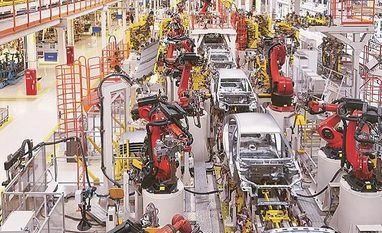Goods and services tax on caffeinated drinks will go up substantially, if the Council accepts the fitment panel’s recommendation of a steep increase in the tax rate to 40 per cent (28 per cent GST and 12 per cent cess), from the current 18 per cent, in its meeting on Friday here.
Caffeinated drinks are among a handful of items for which a hike in the GST rate has been recommended. In fact, rate cut demands for about 200 items — such as automobiles, biscuits, rusks, TVs (screen size more than 32 inches), footwear, mineral water, breakfast cereal, helmets, chemical fertilisers, and itra (perfume) — have been rejected by the rate fitment panel.
The fitment panel, comprising state and central officials, noted that caffeinated beverages although provide instant energy, they have a negative impact on health. It has recommended that these be placed in the highest tax slab. “A lot of recommendations for rate reduction were rejected by the fitment panel, keeping in view the revenue position,” said a government official.
Rejecting a rate cut for the auto sector, the panel took a view that the move will not only entail a huge revenue implication, but also that the slowdown could be credited to a host of other structural and cyclical factor. It pointed out that liquidity crunch, NBFC crisis, regulatory changes like axle load increase, change from BSIV to BSVI, and efficiency gains due to GST implementation may explain the motown’s demand slowdown.
It added that a reduction in the GST on motor vehicles will not necessarily entail a reduction in the GST rates for auto parts and components as well.
Despite a push from Road and Transport Minister Nitin Gadkari, the fitment committee turned down the request for a rate cut in hybrid vehicles, citing that they already have a tax advantage of 5 per cent over a normal large segment internal-combustion engine vehicle.
In a big boost for the tourism industry, the Council will on Friday take up rate rationalisation for five-star hotels having room fare of at least Rs 7,500 per night to 18 per cent from 28 per cent. It was argued that the high rate made the Indian tourism industry uncompetitive when compared to other Asian tourist destinations like China, Hong Kong, Singapore, Thailand, and Mauritius, which have a GST rate of 9 per cent, 7 per cent, 7 per cent and 15 per cent, respectively.
Besides, the panel recommended a GST exemption for those defence products, which are unlikely to be produced in India over the next five years.
The rate reduction demand for medicines from 12 per cent to 5 per cent or nil was also turned down, citing that the pre-GST incidence was 13 per cent, including 6 per cent excise duty, 5 per cent weighted average VAT and 2.5 per cent CST, entry tax octroi.
It also rejected the demand for a rate cut in mineral water on ground that it caters only to the affluent section of society.
To read the full story, Subscribe Now at just Rs 249 a month
Already a subscriber? Log in
Subscribe To BS Premium
₹249
Renews automatically
₹1699₹1999
Opt for auto renewal and save Rs. 300 Renews automatically
₹1999
What you get on BS Premium?
-
Unlock 30+ premium stories daily hand-picked by our editors, across devices on browser and app.
-
Pick your 5 favourite companies, get a daily email with all news updates on them.
Full access to our intuitive epaper - clip, save, share articles from any device; newspaper archives from 2006.
Preferential invites to Business Standard events.
Curated newsletters on markets, personal finance, policy & politics, start-ups, technology, and more.
Need More Information - write to us at assist@bsmail.in
)